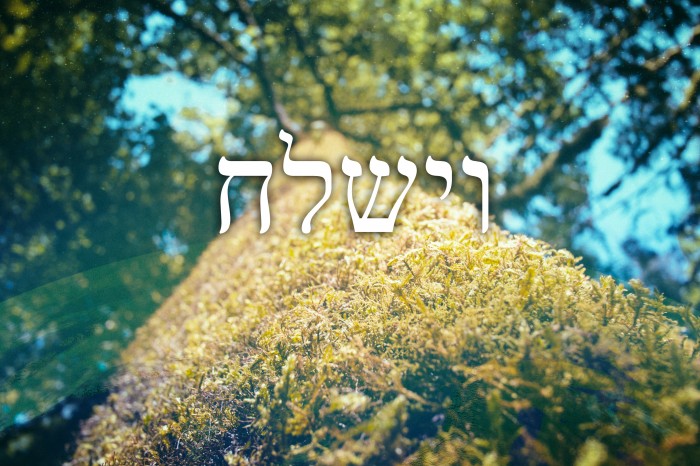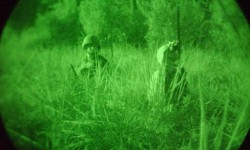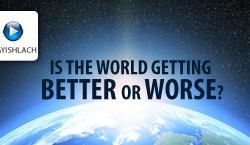
Vayishlach
To reach someone else, usually you have to reach out of yourself.
Jacob sends peace ambassadors to his brother Esau. They report that Esau is on a war march, four hundred warriors strong. Jacob girds for battle, devotes in prayer, and bestows gifts upon Esau. Wrestling with an angel leaves Jacob limping and with a new name: Israel. Jacob – or Israel – and his brother Esau reconcile. Innocence is violated by evil. Two tribes, Simeon and Levi, uproot the evil in its entirety. Rachel gives birth to the youngest of the 12 tribes. Soon thereafter, Rachel passes away on the road near Bethlehem. Jacob returns to Hebron. His father Isaac ascends this physical world at the age of 180. Esau’s progeny and the kings of Edom conclude the narrative.
Electric Light
The elementary principle of Chassidism: to draw down and connect the ultimate heights with the lowest depths.
Read MoreAn Unreasonable Source
Our every mitzvah should be saturated with the self-sacrifice and depth of commitment that motivated Shimon and Levi.
Read MoreThe Dislocated Hip
By remembering Jacob’s wound we sensitize ourselves to the fact that mindless immersion in material existence touches a nerve which leaves us wounded.
Read MoreA Mother’s Tears
Rachel exemplifies compassion and enables us to recognize our inherent value by virtue of the fact that every single person was created in the Divine Image.
Read MoreNight Stalkers
The stranger was Esau’s guardian angel, and the battle represented the struggle between Jacob and Esau, archetypes of the two polar forces in existence which stand in perpetual battle.
Read MoreThe Big Confrontation – Jacob & Esau Meet
Each of us must ask ourselves the question: Is my material life aligned with my spiritual one? Have I integrated what I do with who I am?
Read MoreIt’s All in the Details
G-d is in the details. Discover how small little matters contain the ultimate greatness, but only when they are infused with vision.
Read MoreIs the World Getting Better or Worse?
Reveal new ways to look at your life and the world around you. Learn how you can be a force that helps shape our collective and individual destiny.
Read MoreGood and Bad Angels: The Forces in Our Lives
Discover angels’ relevance to our lives, how we can control our destinies by creating good and bad angels, and how they impact all our interactions.
Read More












